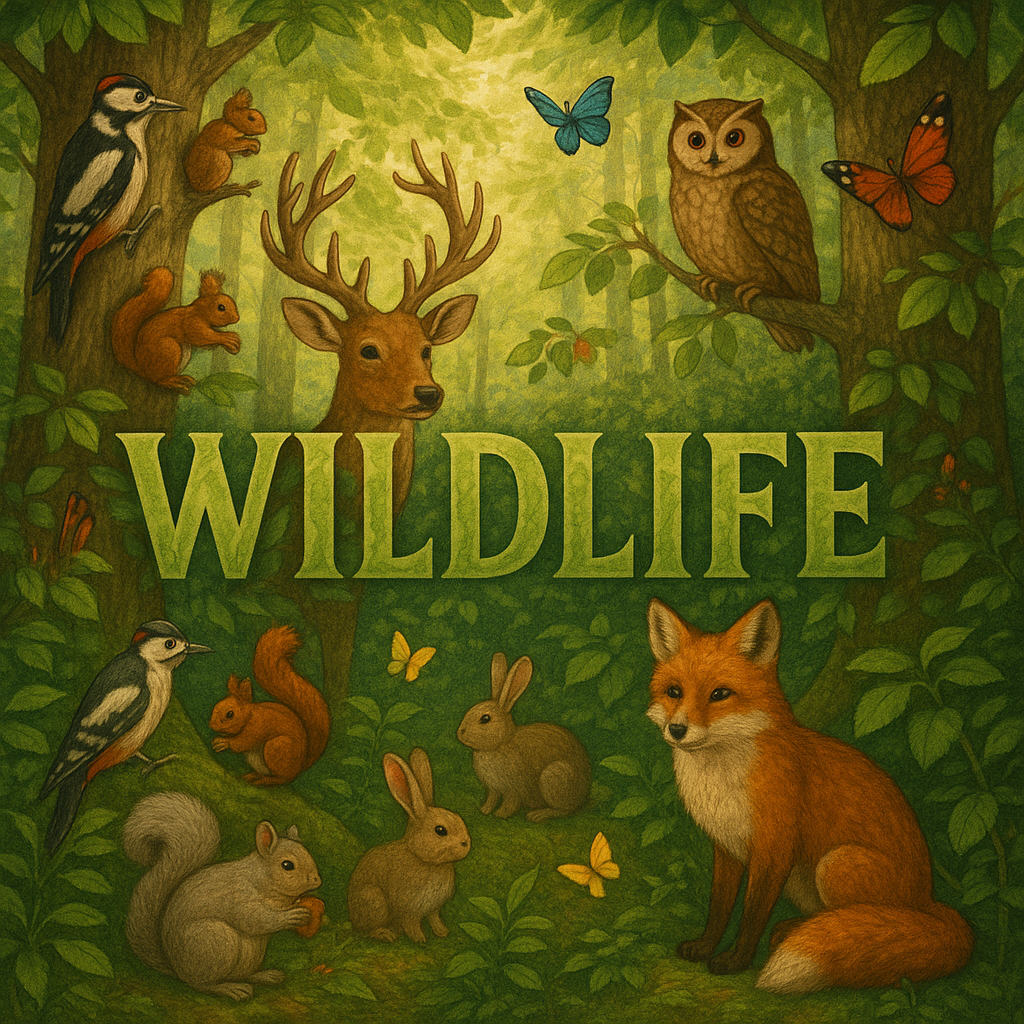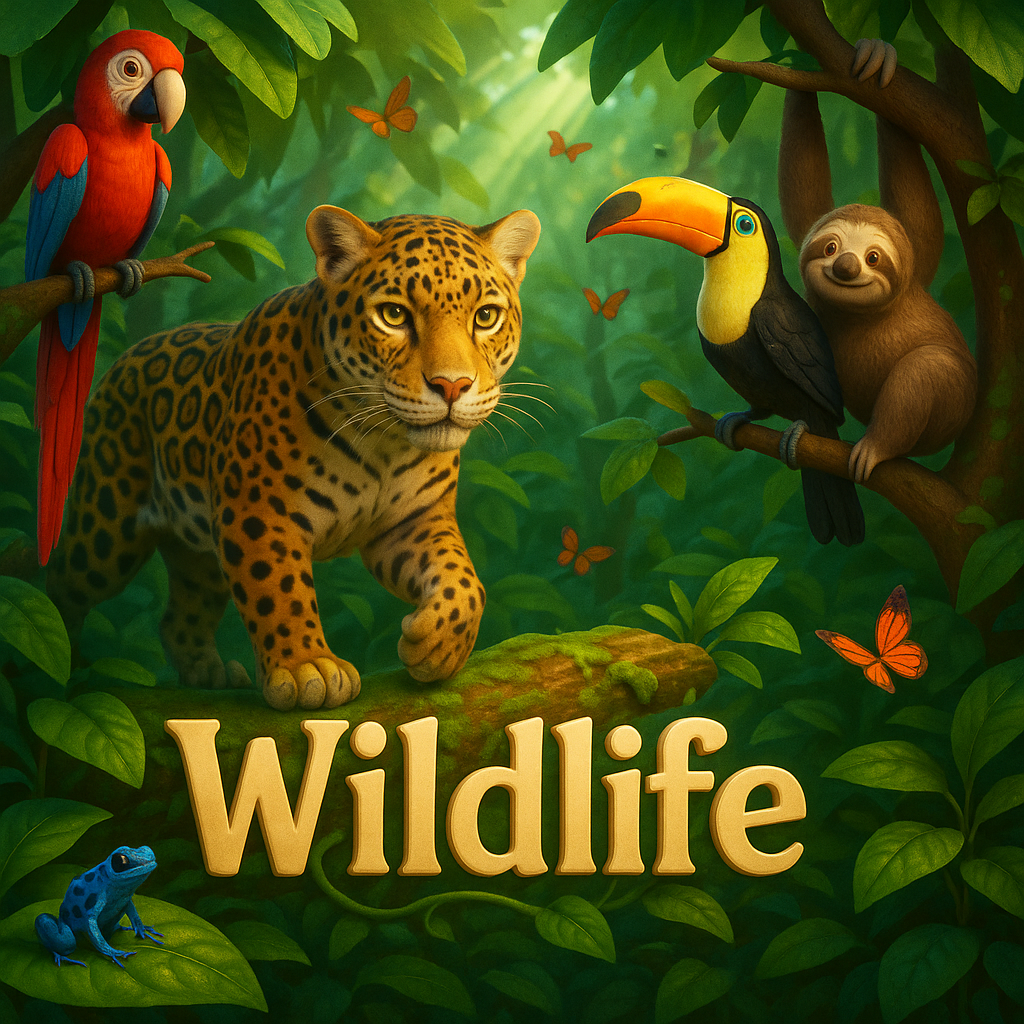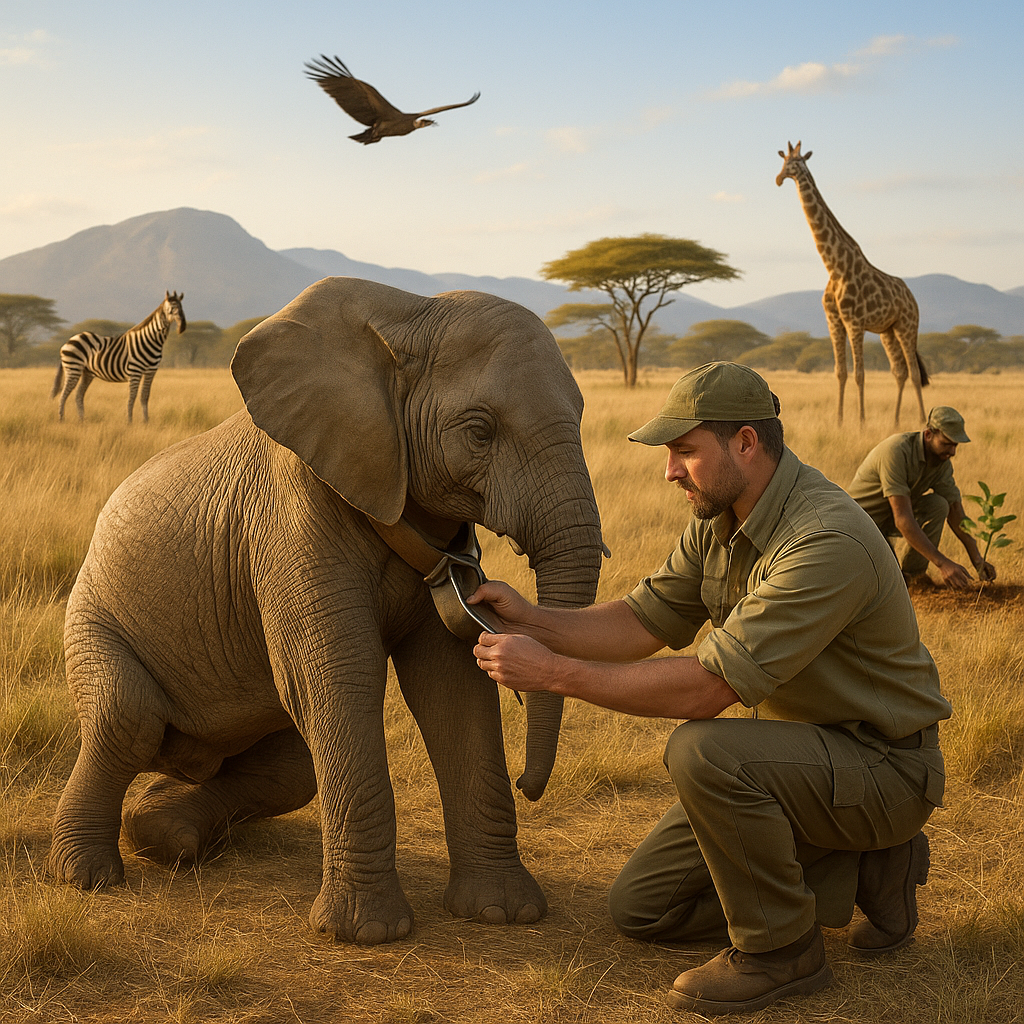Wildlife
Definition
Wildlife refers to undomesticated animals, plants, and other organisms living in their natural habitats. It is commonly associated with species that exist without human intervention.
Parts of Speech
- Noun
Pronunciation
American English
- IPA Pronunciation: /ˈwaɪldˌlaɪf/
- Respelling: WYLD-life
British English
- IPA Pronunciation: /ˈwaɪldˌlaɪf/
- Respelling: WYLD-life
Etymology
The term "wildlife" originated in the early 20th century as a compound of "wild," derived from Old English "wilde," meaning "in a natural state," and "life," from Old English "līf," referring to living organisms. It broadly refers to flora and fauna in their natural settings.
Derivatives
- Wildlifer (noun, informal)
- Wildlife reserve (noun)
- Wildlife management (noun)
- Wildlife sanctuary (noun)
- Wildlife photography (noun)
Synonyms
- Fauna
- Flora and fauna
- Nature
Antonyms
- Domesticated animals
- Urban life
- Human-influenced environments
Usage
The noun "wildlife" is used to refer to undomesticated plants and animals living in the wild, such as "The park is home to diverse wildlife." It is also commonly used in conservation contexts, for example, "Efforts to protect wildlife are increasing."
Related Terms
- Conservation: The protection and preservation of natural environments and species.
- Habitat: The natural environment of a plant or animal.
- Biodiversity: The variety of life in a particular habitat or ecosystem.
Detailed Definitions
Noun
- Undomesticated animals and plants living in natural environments: Refers to organisms existing without direct human control.
- Example: "The forest is teeming with wildlife."
- Species native to specific regions: Describes local flora and fauna in particular ecosystems.
- Example: "The Amazon is known for its diverse wildlife."
- A focus of conservation efforts: Refers to species and habitats targeted for protection.
- Example: "Wildlife conservation is essential for ecological balance."
wildlife



🇨🇳 Mandarin
- 野生动物 (Wildlife)
- IPA: /jɛ˧˥ ʂɤŋ˥˩ tʊŋ˧˥ wu˥˥/
- English Respell: Yěshēng dòngwù
🇮🇳 Hindi
- वन्यजीव (Wildlife)
- IPA: /ʋəɳ.jə.d͡ʒiːʋ/
- English Respell: Vanyajeev
🇪🇸 Spanish
- Vida salvaje (Wildlife)
- IPA: /ˈbiða salˈβaxe/
- English Respell: Vida salvaje
🇫🇷 French
- Faune sauvage (Wildlife)
- IPA: /fon so.vaʒ/
- English Respell: Faune sauvage
🇸🇦 Modern Standard Arabic
- الحياة البرية (Wildlife)
- IPA: /ælħæːʔæːt ælbæːrjæ/
- English Respell: alhayat albariyya
🇧🇩 Bengali
- বন্যপ্রাণী (Wildlife)
- IPA: /bɔnjaprani/
- English Respell: Bonjoprani
🇷🇺 Russian
- Дикая природа (Wildlife)
- IPA: /ˈdʲikəjə prʲɪˈroda/
- English Respell: Dikaya priroda
🇵🇹 Portuguese
- Vida selvagem (Wildlife)
- IPA: /ˈvidɐ sɛlˈvaʒẽj/
- English Respell: Vida selvagem
🇮🇩 Indonesian
- Satwa liar (Wildlife)
- IPA: /ˈsatwa ˈli.ar/
- English Respell: Satwa liar
🇩🇪 German
- Wildleben (Wildlife)
- IPA: /ˈvɪltˌleːbən/
- English Respell: Wildleben
🇯🇵 Japanese
- 野生動物 (Wildlife)
- IPA: /joːsʲoː doːbutsɯː/
- English Respell: Yasei dōbutsu
🇻🇳 Vietnamese
- Động vật hoang dã (Wildlife)
- IPA: /ɗoŋ˧˩ waːt˧˥ hwəjŋ˧˥ zâː/
- English Respell: Động vật hoang dã
🇰🇷 Korean
- 야생동물 (Wildlife)
- IPA: /jaːsʰɛŋ doŋmul/
- English Respell: Yasengdongmul
🇹🇷 Turkish
- Yaban hayatı (Wildlife)
- IPA: /jɑːˈbɑn hɑːjɑːˈtɯ/
- English Respell: Yaban hayatı
🇵🇰 Urdu
- جنگلی حیات (Wildlife)
- IPA: /d͡ʒəŋɡliː həˈjɑːt/
- English Respell: Jangli Hayaat





